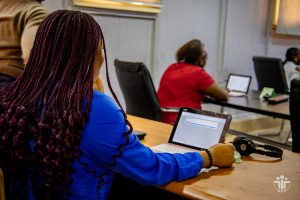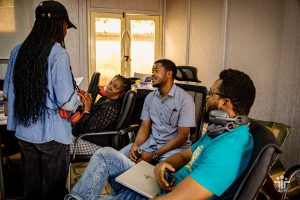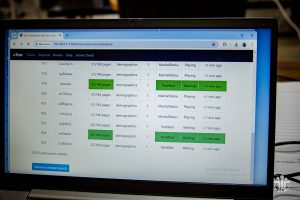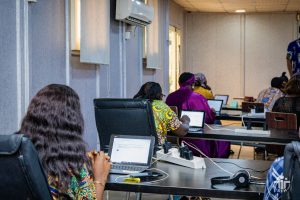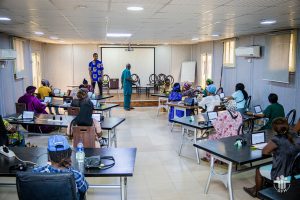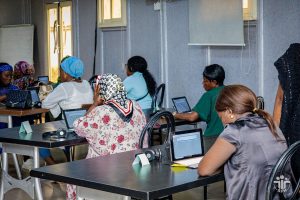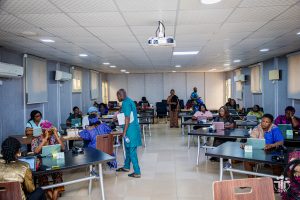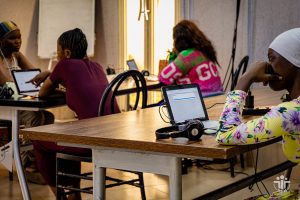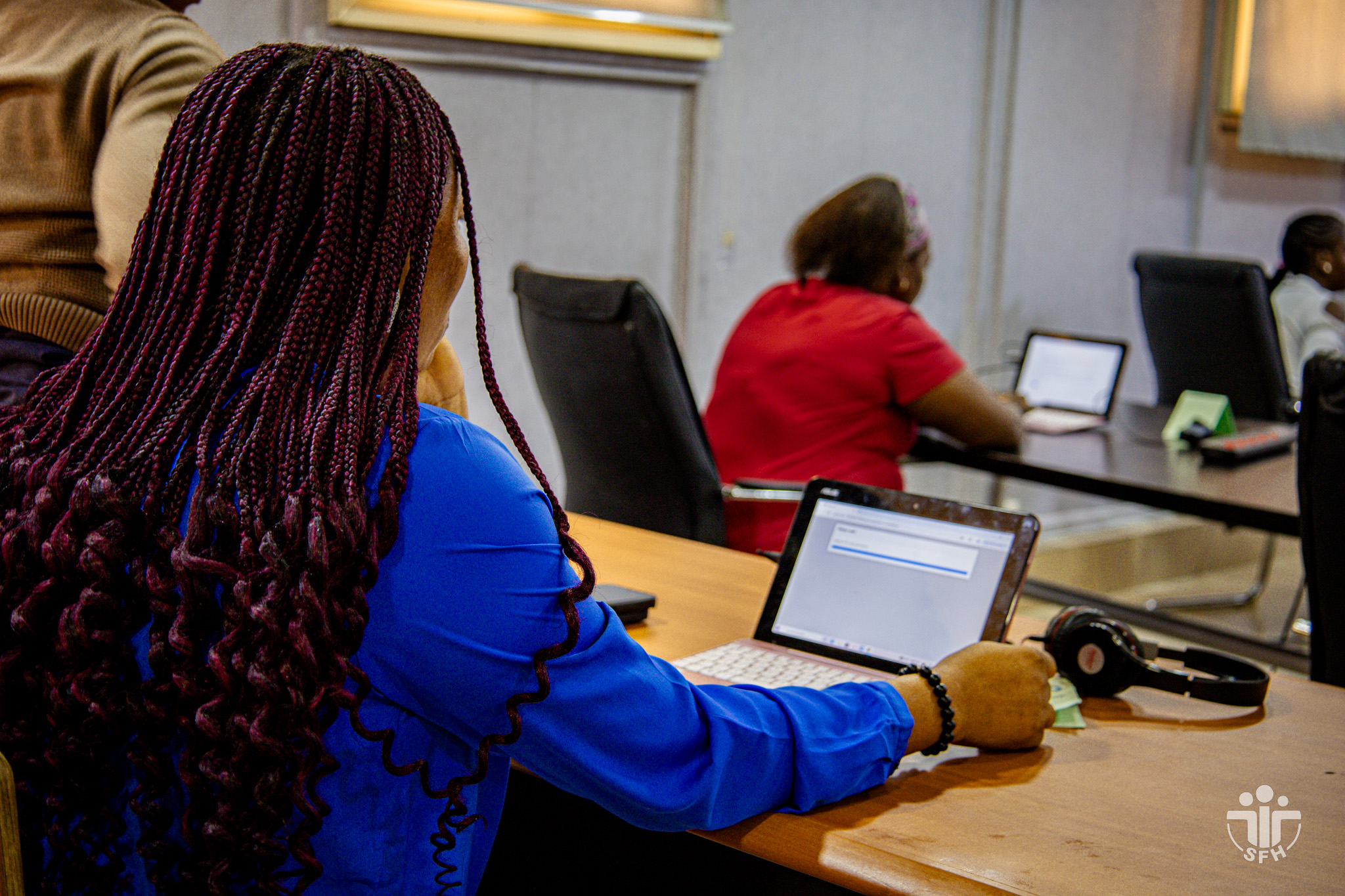For the month of July 2024, the E-Pharma4FP project successfully completed a comprehensive quantitative study in three underserved locations within Lagos State. The study aimed to assess digital connectivity and adoption of Digital Health Solutions (DHS) for family planning among these communities, uncovering key insights that are shaping our intervention strategies.
The findings revealed a mixed landscape of digital access and awareness:
- 63% of respondents owned smartphones, and 79% had internet access, yet only 16% were aware of existing DHS for family planning.
- 49% of respondents had adopted some form of DHS, leaving a significant portion unengaged.
- Among those without smartphones (34%), 93% owned feature phones, highlighting the need for alternative access points.
- Alarmingly, 84% of the population surveyed were entirely unfamiliar with DHS, signaling a critical gap in awareness and access.
Recognizing the need to bridge these digital connectivity gaps, the E-Pharma4FP project has initiated an innovative Lab-in-the-Field (LitF) study to explore equitable access models for family planning services.
This four-week study, currently being conducted in three key locations—Ikeja, Badagry, and Ikorodu—aims to assess user preferences, digital self-efficacy, and the effectiveness of various digital access points, such as USSD (Unstructured Supplementary Service Data), WhatsApp, and IVR (Interactive Voice Response). The LitF study employs cutting-edge methodologies, including:
- Rapid Prototyping: Developing and testing functional models of access points in real-time.
- Feedback Sessions: Gathering direct user input to refine and optimize solutions.
- Choice Experiments: Conducting rigorous testing to determine the most preferred and effective digital models.
With a robust representative sample of 2,000 participants, including individuals from underserved and general populations, this study is designed to produce actionable insights into creating equitable, scalable solutions for e-pharmacy family planning services.
The LitF study underscores our commitment to ensuring no one is left behind in accessing family planning services. By integrating innovative technologies with user-centered design, we aim to create sustainable, accessible, and inclusive models that address the unique challenges faced by underserved communities.
